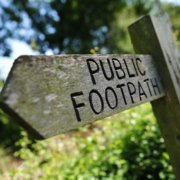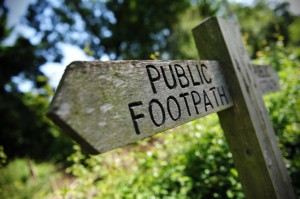
International sporting events have the potential to captivate, engage and inspire a nation. If proof were ever required we need only to cast our gaze back to 2012 and the London Olympics; 900 million people tuned in to watch the opening ceremony of a games that kept everybody on the edge of their seats for the entirety of a summer.
So with the dawn of a Rugby World Cup hosted on home soil for the first time in 24 years now less than nine months away, is the tournament an opportunity your holiday home letting business can afford to miss out on? Is your holiday home ready for the Rugby World Cup?
Will your guests be watching or interested in the Rugby World Cup?
The statistics indicate that whilst many of us won’t be motivated to get down to the local ground on the average Saturday, we’re more than happy to get behind our team when the World Cup steamrolls into town:
- 5 million applications for tournament tickets were made in 17 days; that’s four every second!
- 650,000 people applied for tickets to see England’s Pool A showdown with Australia at Twickenham Stadium; enough to fill the stadium eight times over.
- 5 million people tuned in to watch Jonny Wilkinson kick for World Cup glory in 2003, with many of them welcoming the trophy home in a Trafalgar Square parade.
How close will you be to the action?
The following venues will be hosting World Cup games in 2015;
- Brighton Community Stadium
- Elland Road (Leeds)
- Kingsholm Stadium (Gloucester)
- Leicester City Stadium
- Manchester City Stadium
- Millenium Stadium (Cardiff)
- Olympic Stadium (London)
- Sandy Park (Exeter)
- St James’ Park (Newcastle)
- Stadium MK (Milton Keynes)
- Twickenham Stadium (London)
- Villa Park (Birmingham)
- Wembley Stadium (London)
How can you attract and cater for the World Cup rugby fan?
Get ready now
Don’t wait until the tournament is upon us; begin your promotion now. Your blog and the latest news section of your website will be a great place to show your guests what you’ll be doing for them during the tournament.
Here are a few things you can be telling them about:
Where can they watch the games?
Some will want to watch from home, others to get together in front of a big screen and cheer their team on. Ensure you give visitors to your website and holiday home information on local pubs and venues showing the games.
Are there local events?
A huge element of this year’s World Cup is family engagement. A series of events will be taking place across the country before and during the tournament so keep an eye out for any that may be of interest to your visitors.
Do your research and make sure they’re featured in your welcome pack and promoted on your website.
Customise your welcome pack
It can be as simple as adding in a tournament planner / itinerary, or perhaps even some rugby related paraphernalia or snacks to eat during the game.
Remember there is only one chance to make a first impression so it pays dividends to ensure it’s a good one.
Is it time for a new television?
One thing you may have noticed before a ball was kicked at last year’s FIFA World Cup is that retailers know it’s time to cash in. There will be deals on televisions before the Rugby World Cup so is it time to upgrade?
Technology such as High Definition (HD), 3D televisions and Home Cinema Systems have become commonplace amongst many holiday homes across the country; is yours up to scratch?
If the television is sorted do you have any way of your guests recording the game to watch in peace once the kids are in bed or they’ve returned from a great day out?
If you’ve gone to the expense of giving your guests a great television experience make sure it’s clearly promoted and communicated on your site and by your holiday home letting agent. If you do go so far as to upgrade your television, ensure that that your holiday home insurance sums insured are sufficient and that you have the correct levels of cover for your needs.
Here’s to a great World Cup!
Boshers are specialist providers of insurance for holiday homes and cottages. For more information on how a specialist insurer can help and support your holiday home business, please give us a call on 01237 429444.



 If you own and run a holiday home have you ever considered using the support and expertise of a specialist holiday home letting agent?
If you own and run a holiday home have you ever considered using the support and expertise of a specialist holiday home letting agent?
 Whilst traditionally a time spent with family in the confides of our own home, more and more of us are now packing our bags and heading for a holiday cottage to celebrate Christmas.
Whilst traditionally a time spent with family in the confides of our own home, more and more of us are now packing our bags and heading for a holiday cottage to celebrate Christmas.



 A dog has long been regarded as a man’s best friend and for a nation of pet lovers it doesn’t stop there; from your pampered pooch to the fastidious feline, an estimated one in three UK households now has a pet to call their own.
A dog has long been regarded as a man’s best friend and for a nation of pet lovers it doesn’t stop there; from your pampered pooch to the fastidious feline, an estimated one in three UK households now has a pet to call their own.
 In 1988 the Proclaimers confidently claimed they would walk 500 miles and may well be prepared to walk 500 more. Whilst that’s far enough to arrive in Barcelona from our North Devon base and still have a few miles in the tank, many of us have followed them by strapping on our own walking boots opening up opportunities for marketing your holiday home to walkers.
In 1988 the Proclaimers confidently claimed they would walk 500 miles and may well be prepared to walk 500 more. Whilst that’s far enough to arrive in Barcelona from our North Devon base and still have a few miles in the tank, many of us have followed them by strapping on our own walking boots opening up opportunities for marketing your holiday home to walkers.
 Fresh air, stunning views, great company and the sun on your back, what could be better than enjoying a walk in the British countryside?
Fresh air, stunning views, great company and the sun on your back, what could be better than enjoying a walk in the British countryside?
 When we make decisions, no matter how large or small, logic and reasoning will more often than not play a role in the outcome.
When we make decisions, no matter how large or small, logic and reasoning will more often than not play a role in the outcome.
 With more than 7,000 miles between Britain and Hawaii it may seem the two are quite literally poles apart, if not only in terms of geography but also meteorologically given the potential inclemency of a British summer.
With more than 7,000 miles between Britain and Hawaii it may seem the two are quite literally poles apart, if not only in terms of geography but also meteorologically given the potential inclemency of a British summer.
